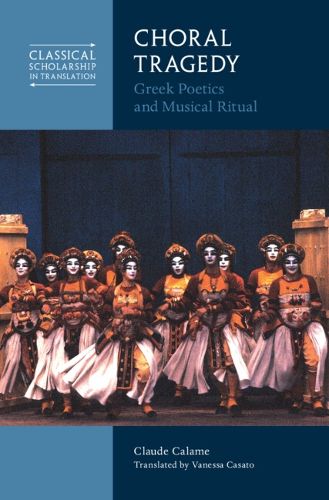Readings Newsletter
Become a Readings Member to make your shopping experience even easier.
Sign in or sign up for free!
You’re not far away from qualifying for FREE standard shipping within Australia
You’ve qualified for FREE standard shipping within Australia
The cart is loading…






Ever since Aristotle opened the discussion on the role of the chorus in Greek tragedy, theories of the chorus have continued to proliferate and provoke debate to this day. The tragic chorus had its own story to tell; it was a collective identity, speaking within and to a collective citizen body, acting as an instrument through which stories of other times and places were dramatized into resonant heroic narratives for contemporary Athens. By including detailed case studies of three different tragedies (one each by Aeschylus, Euripides and Sophocles), Claude Calame's seminal study not only re-examines the role of the chorus in Greek tragedy, but pushes beyond this to argue for the 'polyphony' of choral performance. Here, he explores the fundamentally choral nature of the genre, and its deep connection to the cultic and ritual contexts in which tragedy was performed.
$9.00 standard shipping within Australia
FREE standard shipping within Australia for orders over $100.00
Express & International shipping calculated at checkout
Ever since Aristotle opened the discussion on the role of the chorus in Greek tragedy, theories of the chorus have continued to proliferate and provoke debate to this day. The tragic chorus had its own story to tell; it was a collective identity, speaking within and to a collective citizen body, acting as an instrument through which stories of other times and places were dramatized into resonant heroic narratives for contemporary Athens. By including detailed case studies of three different tragedies (one each by Aeschylus, Euripides and Sophocles), Claude Calame's seminal study not only re-examines the role of the chorus in Greek tragedy, but pushes beyond this to argue for the 'polyphony' of choral performance. Here, he explores the fundamentally choral nature of the genre, and its deep connection to the cultic and ritual contexts in which tragedy was performed.